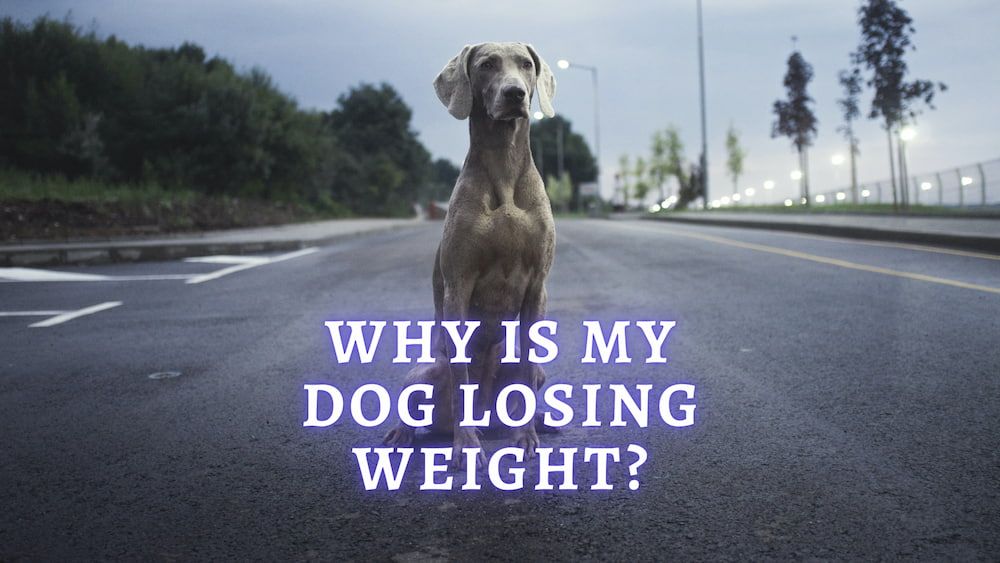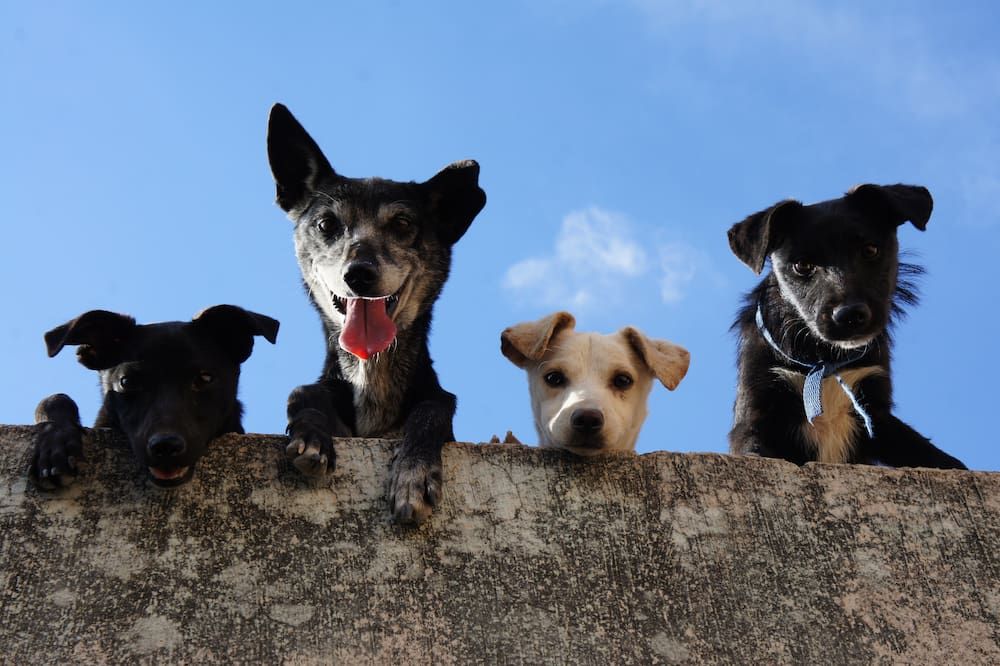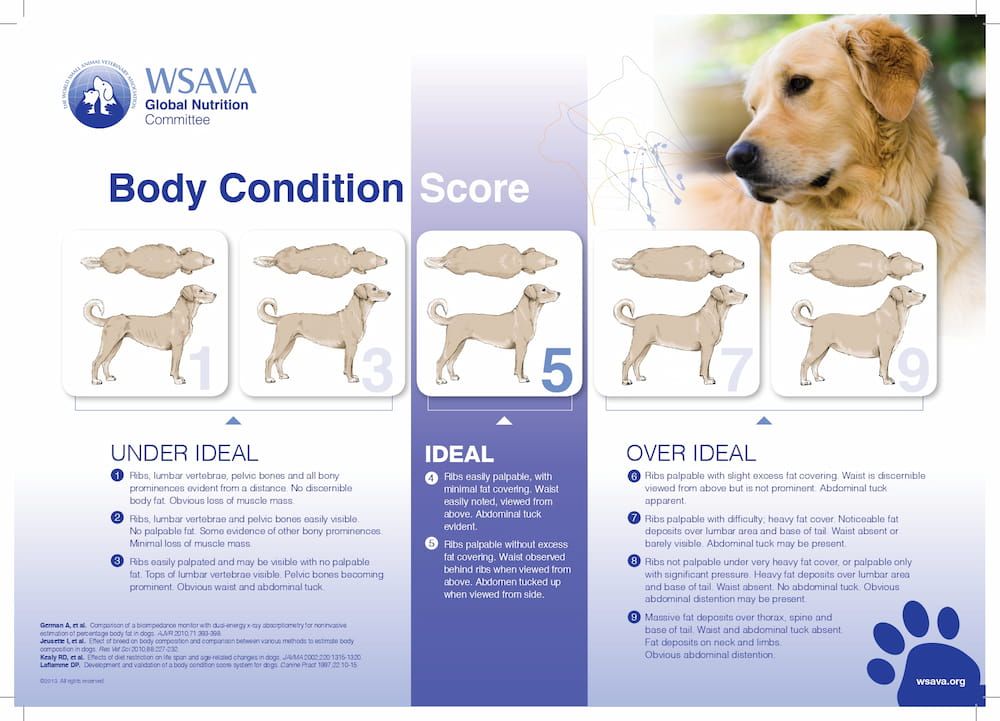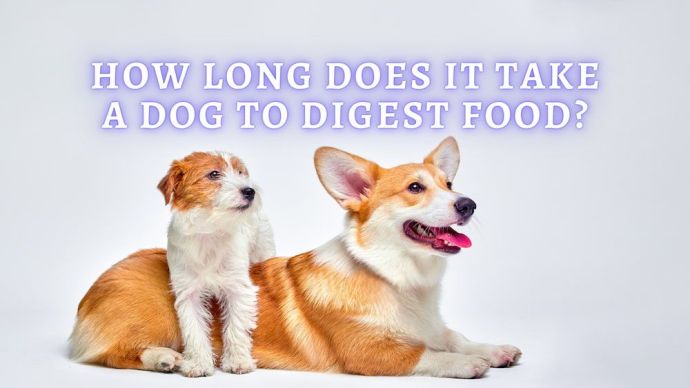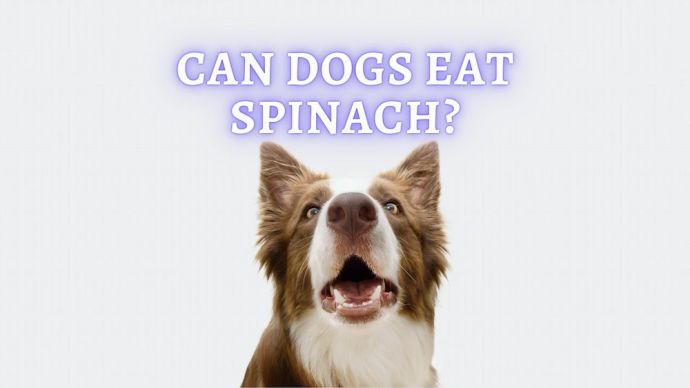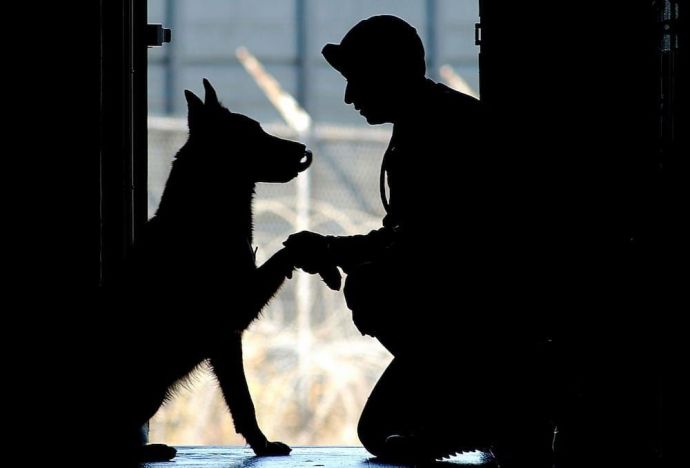Dog Losing Weight: Conditions that Cause Weight Loss in Dogs
Written by:
Author: Marissa Prizio
Marissa Prizio attended the University of New Hampshire and earned a bachelor's degree in biomedical Animal Science. Marissa has always enjoyed writing; she was even mixing literature classes into her science major in college. During her writing career, she has edited eBooks, written for a variety of websites, and created audio-visual courses for sustainability.
View all 36 articlesLearn about our editorial process and veterinary review board.
Viewed: 55
Updated on: 06/27/2023
When it comes to being a pet owner, your pet’s health is a high priority. Not all conditions are easily distinguishable without medical intervention, but some symptoms are. Weight loss in dogs can be a significant red flag regarding their health.
Depending on how much weight is lost and how rapidly slimming down occurs, losing weight can be a clear sign that your canine companion is sick. Losing weight can be suitable for some pets, but when a dog is slimmed down, it can also be a reason for concern. Knowing the difference between average mass loss and a concerning amount of slim down can help dog owners catch some conditions early, so let’s take a deeper look at this topic.
Conditions that Cause Weight Loss in Dogs
Weight loss is not a condition or a diagnosis. Instead, rapid slim-down is more likely a symptom of underlying illness. [1] Here is a list of the most common conditions related to slimming down in pets, and keep in mind that these conditions can be varied, and some may depend on your pets’ environment.
1. Anorexia
Anorexia is defined as a loss of appetite. Pets with anorexia will stop eating, and if this condition is chronic, the lack of energy input will cause rapid slim down. Anorexia can happen for several reasons, some of which are mental, while others are physical.
An example of pseudo-anorexia would be a hungry animal but a physical condition inhibiting its eating ability, like dental problems. True anorexia is the absence of appetite from systemic disease or intense stress.
2. Decreased nutritional intake or increased caloric demand
Every action, no matter how small, requires energy generated from food. Even if there is no increase in physical activity, a decrease in nutritional intake can lead to gradual weight loss in pets. The inverse is also true, where a regular diet and increased activity can result in losing mass. [3]
The decreased nutritional intake looks like any condition that causes pets to eat fewer essential nutrients. This can include a loss of smell making food less interesting, an issue with regurgitation, or changes to their diet that make it less nutritionally dense. Intaking fewer calories can result in a gradual decline in weight unless the condition or diet change causing it severely impacts every meal.
3. Vomiting & Diarrhea
Unlike cases of regurgitation, vomiting includes the ejection of contents from the stomach and upper digestive tract. While this would suggest your pet’s food has made it to their stomach, it still does not allow them to fully absorb all the nutrients they require from that food.
Dogs that vomit regularly will start to lose mass because they can not fully digest their food, and in some cases, vomiting may even affect your pet’s appetite. Much like mass loss, vomiting tends to be a symptom of an underlying illness that requires treatment.
Similar to vomiting, diarrhea robs a pet’s digestive system of the opportunity to fully digest their meals. As a result, pets with chronic diarrhea lose nutrition and also tend to experience dehydration. Diarrhea can be the result of various underlying conditions which would need to be diagnosed and treated to resolve diarrhea and therefore halt unhealthy slim down.
READ MORE: My Dog Throws Up Once a Week
4. Malabsorptive & Maldigestion disorders
Malabsorptive disorders inhibit the body’s ability to absorb nutrients while maldigestion disorders disrupt the body’s ability to break food down into a digestible substance. For example, inflammatory bowel disease and intestinal parasites are malabsorptive while exocrine pancreatic insufficiency and liver disease are forms of maldigestion.
There are plenty of other gastrointestinal disorders that fit into these categories, all of which inhibit a pet’s ability to gain or maintain weight.
5. Metabolic disorders
Metabolism can be defined as the chemical processes that change food into cellular energy. Some conditions can alter the body’s ability to maintain a steady metabolism. Dogs lose weight when their metabolism increases and is not met by increased nutritional intake.
Conditions that can lead to an abnormally high metabolism include diabetes mellitus, Addison’s disease, and certain forms of cancer. [1] [4]
Neuromuscular disease & Discomfort
Gastrointestinal disorders can be the result of nerves and muscles in the digestive system not functioning appropriately. Weakness or paralysis of any part of the digestive system can make it difficult or even impossible for pets to consume nutrients.
Discomfort may fall into a separate category, but malaise brought on by various conditions can also cause decreased appetite. Conditions like kidney disease and heart disease can impact hormone levels and cause dogs to feel so unwell that they experience a decreased appetite. [5] Weight loss is most notable in later-stage chronic kidney disease and as heart disease progresses, especially if no medical treatment is implemented.
Why Is My Dog Losing Weight And Drinking Lots Of Water?
There are two main conditions associated with a pet losing mass, drinking lots of water, and experiencing excessive urination: diabetes mellitus and kidney disease.
This form of diabetes results in the body being unable to obtain adequate energy from its food, triggering an apparent starvation mode. As a result, the dog is losing mass despite eating more, urination increases to expel the undigestable glucose, and the pet drinks more water to avoid dehydration. [4] If a vet suspects that diabetes is causing your pup to lose weight rapidly, then your dog’s blood will be drawn for a blood glucose test.
Weight loss in dogs associated with kidney disease can be due to changes in metabolic function or the discomfort that comes with the progression of this condition. Weight loss here is normally coupled with a decreased appetite, and while losing mass does not cause an increase in water intake, this condition can cause pets to drink more water since their kidneys may be expelling an excessive amount. [6]
READ MORE: Kidney Care for Dogs
Is It Normal for Dogs to Lose Weight as They Get Older?
Older dogs experience a lot of physical changes, one of which can be slim down. Senior dogs tend to be less active than younger pets and have lower energy needs. [3] This can result in a comparatively decreased appetite and some muscle loss.
While small changes in body weight may not be a reason for concern, any amount that is considered clinically significant or cases of rapid slim down are reasons for concern. Unexplained slim down may be the result of underlying issues that need to be managed by a veterinarian.
Weight loss in dogs is a common topic for obese animals, especially any overweight older pet, in which case losing mass intentionally is great. If a dog is losing weight unintentionally, regardless of their current size, it is worth noting at checkups in case an underlying condition is causing them to lose weight. [1]
RELATED: Dog Is Getting Old
How Do I Know If My Dog Is Too Thin?
Since dogs come in so many sizes, it can be difficult to determine a normal body weight without professional input. A healthy weight is typically determined by body condition scoring, which vets perform at most visits. A healthy pet will maintain an adult body mass that puts them at a 5 on the body condition score. Slim down that exceeds 10% of your pet’s healthy body weight is considered significant. [1]
Anything less than a score of 5 is considered underweight. [7] A few pounds of slim down may seem minor to us, but depending on a dog’s mass when healthy, a few pounds can be considered significant weight loss.
The best way to determine if your pup is too thin is to talk to the veterinarian about physical signs of sudden slim down and discuss how many calories are adequate for their specific needs.
What Should I Feed A Dog That Is Losing Weight?
When a dog is losing weight, it might seem like offering them more calories will resolve their slim down. While a pet’s diet does affect a dog’s mass, slim down in dogs can be the result of various medical conditions. [3]
Feeding fatty or high-calorie food to a dog that is losing mass might not resolve the pet’s slim down. Some conditions, like heart disease, may even worsen with a sodium or fat-rich diet. Weight loss in dogs is best assessed and resolved through a physical examination with your pet’s veterinarian, which may include calculating their ideal caloric intake. [3]
When to See Your Vet About Your Dog’s Weight Loss
If your dog’s weight loss is intentional and advised by your veterinarian, it can be celebrated, but rapid slim down or losing mass unintentionally are reasons to visit your vet. [1] Weight loss can be the result of the many medical conditions discussed prior, some of which can have more detrimental impacts beyond weight loss.
Conditions like kidney disease, intestinal parasites, and digestive issues can cause more damage to a dog’s system the longer they are left untreated. A complete physical examination and assessment of any symptoms that started when the dog began to lose mass will be completed by a veterinarian. Blood tests, fecal tests, and even specialized diet trials may be needed to discover and treat the condition behind a dog’s slim down.
READ MORE: How to Help Overweight Dog?
FAQ’s:
Why is my dog losing weight even though he is eating?
A dog’s weight can decrease even if the dog eats normally. Some dogs lose weight due to metabolic or gastrointestinal issues that cause them to burn more energy than they can consume. [1] Weight loss can also happen in older dogs who may still eat, but have lower energy requirements and lose muscle mass over time.
What are weight loss symptoms in dogs?
Weight loss is most notable in the visual appearance of a pet. A pet that is losing weight will have more pronounced ribs and their weight can be monitored using a scale. [7]
How can I help my dog gain weight?
Weight loss commonly results from an underlying condition, especially if a dog loses weight rapidly. Dog food alone may not be efficient for gaining weight. The best course of action is to seek a veterinary consult, especially if other symptoms are present. [1]
Article Sources:
- “Abnormal Weight Loss in Dogs.” VCA Animal Hospitals, vcahospitals.com/know-your-pet/weight-loss-abnormal-in-dogs.
- Llera, Ryan, and Robin Downing. “Anorexia in Dogs.” VCA Animal Hospitals, vcahospitals.com/know-your-pet/anorexia-in-dogs.
- “Dog and Cat Calorie Calculator.” OSU Veterinary Medical Center, vet.osu.edu/vmc/companion/our-services/nutrition-support-service/basic-calorie-calculator.
- Williams, Krista. “Diabetes Mellitus in Dogs – Overview.” VCA Animal Hospitals, vcahospitals.com/know-your-pet/diabetes-mellitus-in-dogs-overview.
- “Weight Loss or Poor Growth.” Information on Pets with Heart Disease, heartsmart.vet.tufts.edu/weight-loss-or-poor-growth/.
- Llera, Ryan, et al. “Chronic Kidney Disease in Dogs.” VCA Animal Hospitals, vcahospitals.com/know-your-pet/kidney-failure-chronic-in-dogs.
- McWreath, Amanda. “Weight Loss in Dogs.” Veterinary Partner, veterinarypartner.vin.com/default.aspx?pid=19239&catId=102898&id=10390516.
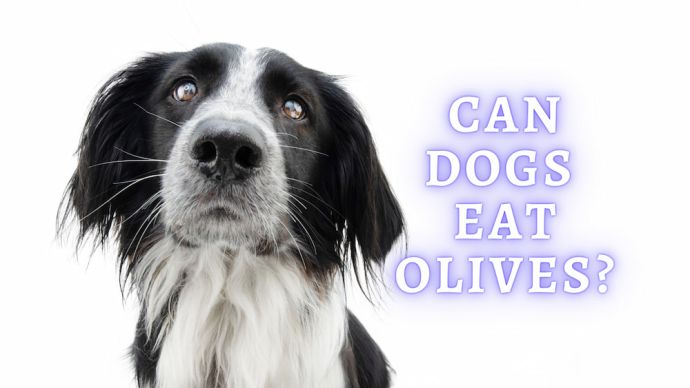 Dog Care Can Dogs Eat Olives? Benefits and Dangers of Feeding Olives to Your Dog
Dog Care Can Dogs Eat Olives? Benefits and Dangers of Feeding Olives to Your Dog - 154
- 0
 Dog Veterinary Tips Tear Stains on Dogs: How to get rid of tear stains on dogs? (Vet Advice)
Dog Veterinary Tips Tear Stains on Dogs: How to get rid of tear stains on dogs? (Vet Advice) - 80
- 0
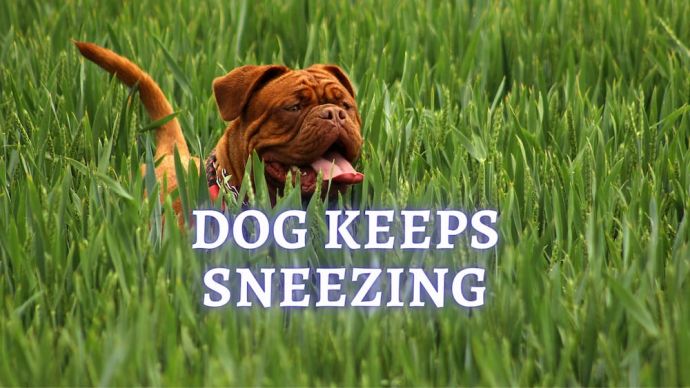 Dog Care My Dog Keeps Sneezing: 6 Health Reasons Why Your Dog Won’t Stop Sneezing (Vet Approved)
Dog Care My Dog Keeps Sneezing: 6 Health Reasons Why Your Dog Won’t Stop Sneezing (Vet Approved) - 57
- 0
 Dog Veterinary Tips Why is my Dog throwing up: Causes and Preventing (Veterinary Advice)
Dog Veterinary Tips Why is my Dog throwing up: Causes and Preventing (Veterinary Advice) - 21800
- 5
 Dog Care My Dog Keeps Scratching His Mouth: Reasons Why Your Dog Scratching Face
Dog Care My Dog Keeps Scratching His Mouth: Reasons Why Your Dog Scratching Face - 17168
- 1
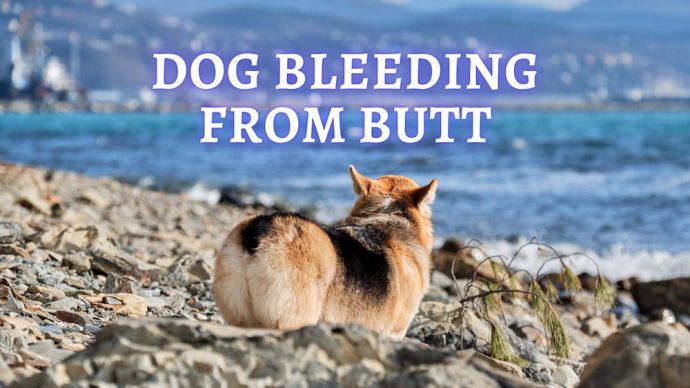 Dog Care Why Is My Dog Bleeding From Its Butt? Causes and treatment of rectal bleeding in the dog
Dog Care Why Is My Dog Bleeding From Its Butt? Causes and treatment of rectal bleeding in the dog - 15112
- 0









